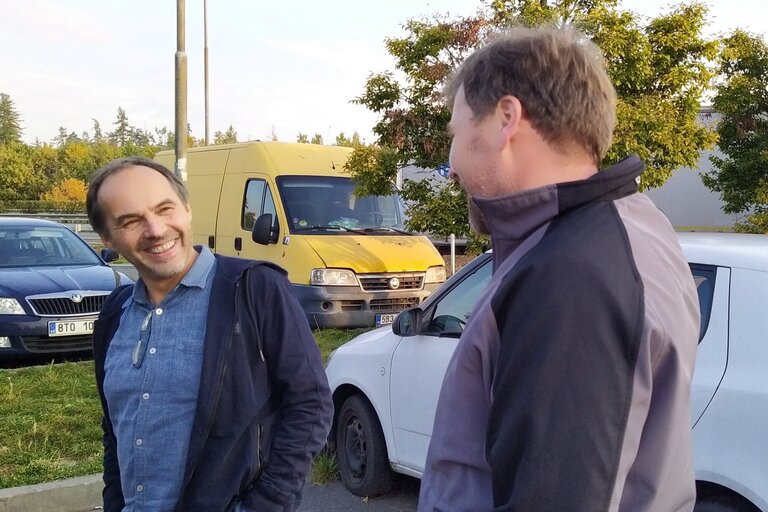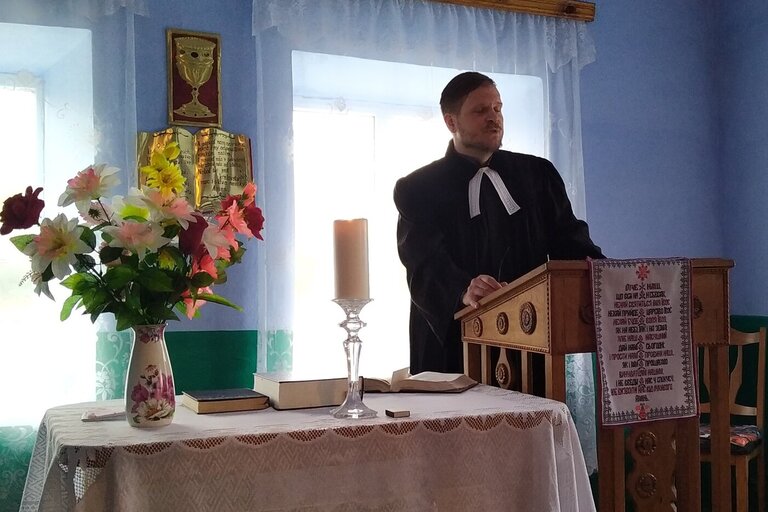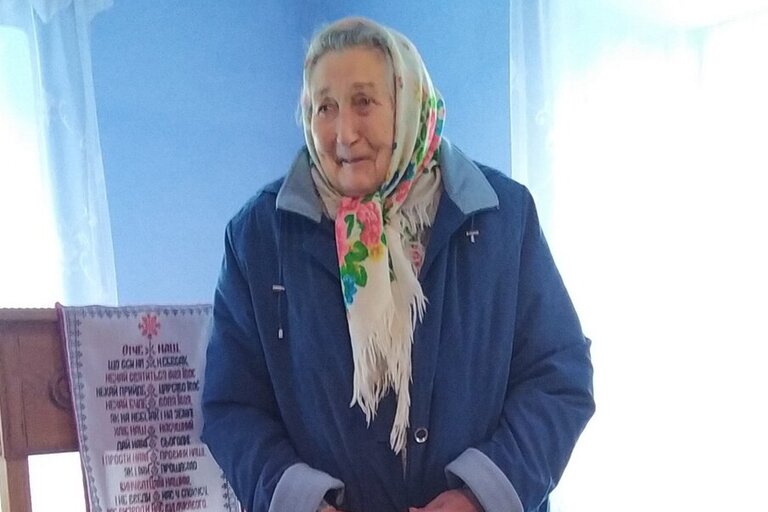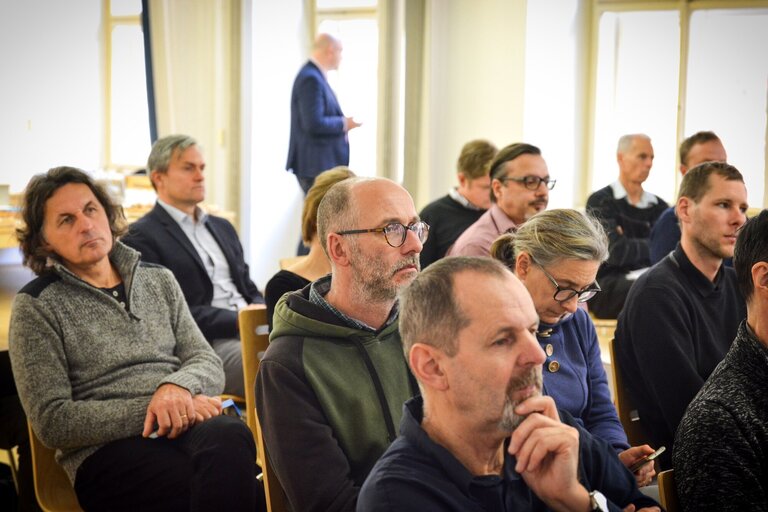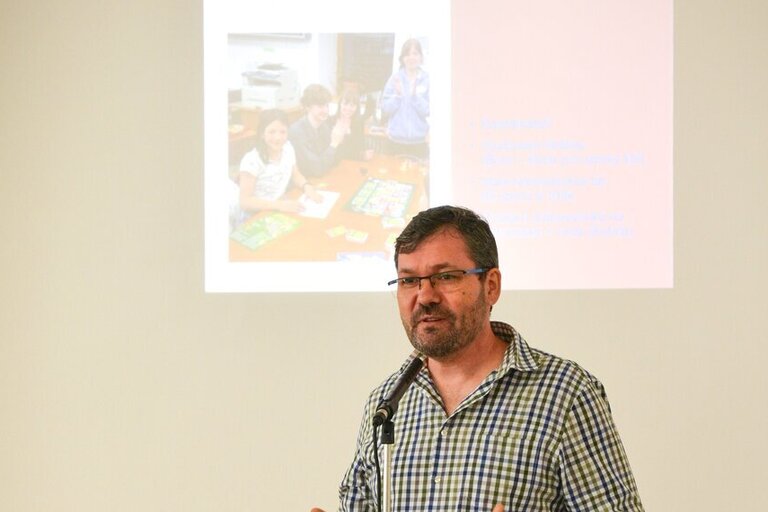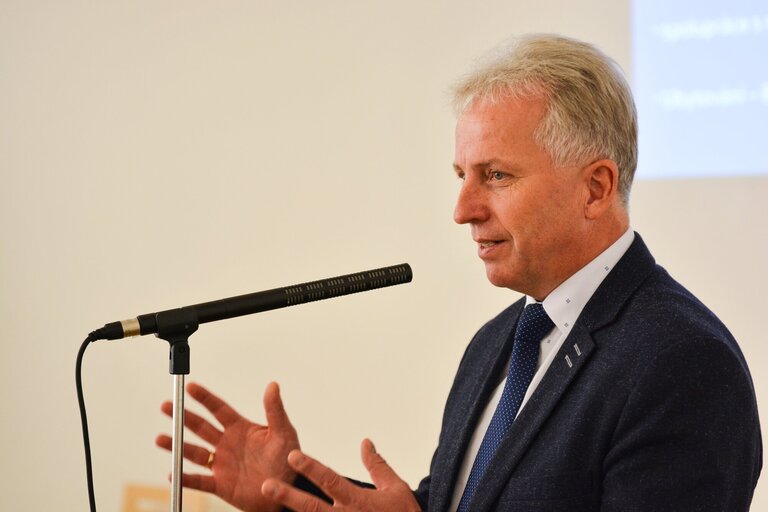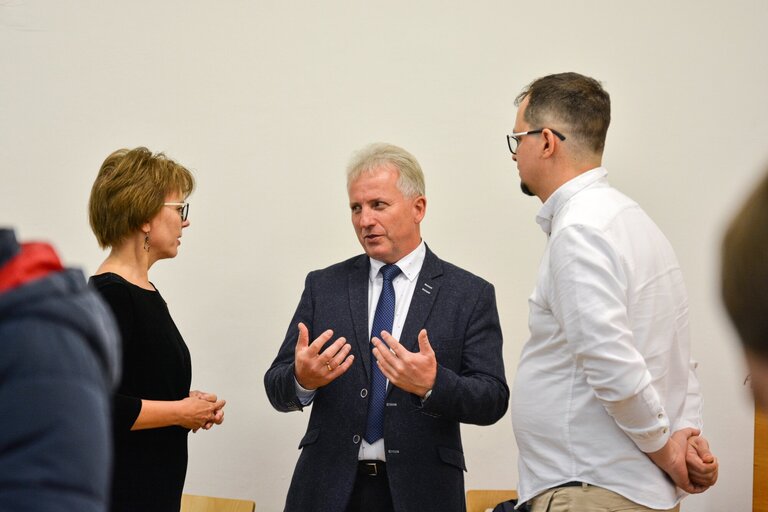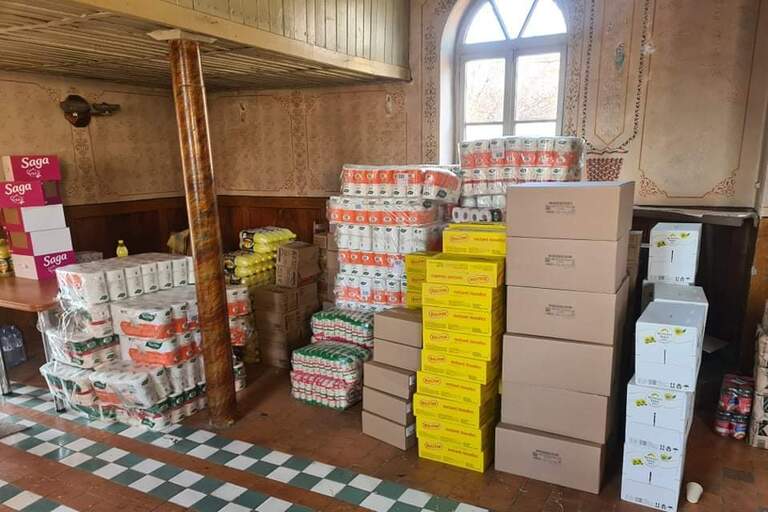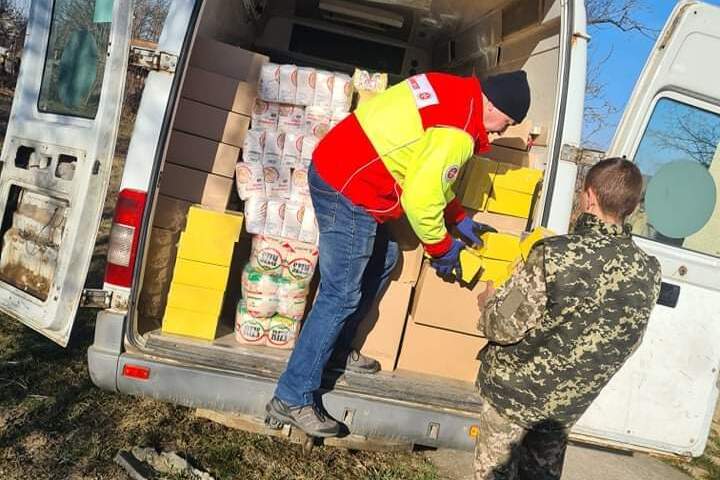Visiting the compatriots’ congregations in Ukraine. Ministers travelled across the border
Nine months after the beginning of the Russian aggression, ministers Miroslav Pfann and Tomáš Vítek visited Czech Protestant congregations in the Mykolaiv region in southern Ukraine in spite of the raging war. Until then, only remote contact was possible by phone, e-mail or letters.

Czech congregations as well as individuals were praying for their Ukrainian compatriots, expressing their solidarity by sending photos, messages and greetings. Also, the ECCB’s leaders were in touch with the representatives of the Czech villages in Ukraine. However, a personal visit is something else altogether. In fact, it had already been planned, but was cancelled due to safety reasons. In the end, though, ministers Miroslav Pfann and Tomáš Vítek decided not to put it off any longer and took the trip despite all the risks.
We then received the following letter from our brothers and sisters in Ukraine:
“After the eight months of Ukraine’s war with Russia, people in our city have got used to the sounds of constant sirens, fighter jets, missiles and, more recently, drones. Only one thing is a little reassuring: none of this is falling on our heads, destroying and killing in Pervomais’k...
Miroslav Pfann and Tomáš Vítek felt the weight of the state of war on their shoulders on the 22nd of October 2022, when they were on their way to our village for worship. That morning, we were waiting for them to arrive from Bohemka, and we were worried what their journey would be like. The siren was continuously blaring, the alarm was on.
Around ten o’clock, we heard three strong explosions which made us even more nervous. Later the ministers arrived, thank God, everything was alright. We were all glad to meet and had a lively discussion, trying to find out what had happened and where. The sermon was taking place, but the question of the explosions was hanging in the air. An hour later, we found out that 30 km from Pervomais’k, in the direction of the Rocket Forces Museum, drones had hit an electrical substation and the town of Pobuzke was left without electricity.
We thank Miroslav Pfann and Tomáš Vítek for a very meaningful and interesting sermon that inspired us to believe in improvement; that Ukrainians are not alone in this struggle for peace and democracy. We are very proud that these two pastors found the courage to come to Ukraine to support us.
We sincerely thank all our friends and acquaintances in the Czech Republic for their understanding, their moral and material support.
We wish you peaceful skies, good health, and may all your plans work out. We believe in the victory of Ukraine without a doubt and with God’s help, we believe we will all soon meet in a peaceful, prosperous, hospitable country, hopefully sometime soon."
Best regards, Chairwoman of the Nová Bohemka association Ludmila Jančík
So far, Czech churches have donated hundreds of millions of crowns, provided accommodation for thousands of refugees, and are reporting their readiness for another possible wave of refugees heading to Central Europe. Representatives of churches and church-established organisations presented various forms of aid at the conference of the European Council of Churches that took place in Prague on 8 November. Mostly, the aid consisted of fundraising events, in which hundreds of millions of crowns were collected. Direct humanitarian and material aid, organising volunteers or assisting with the evacuation of people were some of the other ways in which help was provided.
“The case of the disabled nine-year-old Jaroslava, who is bedridden and whose family was caught up in the Russian aggression in Kyiv, is one that I still can’t get out of my mind. They had to hide in the basement from shelling, and Jaroslava was running out of medication, on which she depended for life. At the beginning of March, the Pardubice Evangelical Church evacuated the girl and her family from the Russian-besieged Kyiv and gave her the chance to live a new life. At the time, evacuation from Kyiv seemed almost impossible, with street fighting on the outskirts of the city, poor mobile connection. Evacuation trains leaving Kiev were overcrowded. But the Czech rescue team made the impossible possible. They reached Kyiv, took Jaroslava, her mother and her brother into an ambulance and returned to the Czech Republic. It was one of the first truly moving stories of Czech aid provided to Ukraine in the first days of the war, the first ray of hope that if we try hard, everything will work out,” recalled First Secretary of the Embassy of Ukraine in the Czech Republic Tetiana Okopna in her greetings.
Thousands of people found accommodation in Czech parishes immediately after the outbreak of the war and many of them are still using it. However, the immediate humanitarian activities have slowly been replaced by assistance with integration: community centres have been established; impromptu language classes, children’s groups, shared offices, and various leisure activities continue to run.
In many cases, Ukrainian refugees have also become a part of local religious life; even some new church congregations mainly consisting of Ukrainians have been established here.
Until recently, Czech churches have been organising help for Ukrainian war refugees in a spontaneous manner, each based on their own current possibilities. The day-long conference in Prague was an opportunity to exchange experiences and to coordinate the way forward. It is relatively likely that a second massive wave of refugees will be heading to the Czech Republic.
“On behalf of the Board of the Ecumenical Council of Churches, I thank from the bottom of my heart all the churches, volunteers, associations, and charities for their great personal commitment, for the exemplary and widespread solidarity, compassion, their welcoming attitude and for creating a warm home for many Ukrainian refugees. I ask that we persevere and do not let our determination fade away in this demanding, but much needed service to our neighbours who have been forced to leave their homes, their families, and their country due to Russia’s military aggression,” Tomáš Tyrlík, chairman of the ECC and bishop of the Silesian Evangelical Church, expressed his gratitude and appeal.
As Robert Řehák, Special Envoy of the Ministry of Foreign Affairs of the Czech Republic, pointed out, due to Russian terrorist attacks on civilian infrastructure, several million people in Ukraine are currently at risk of being left with no heat or energy supplies whatsoever during the winter season. “Among other things, the situation is a catastrophic failure of the Orthodox Church in Russia, which has become a supporter of a criminal regime and is helping to create an environment in which aggression is being legitimised,” added Řehák during his speech.
Informing about the current situation, David Stulík, analyst at the European Values Security Centre and former diplomat, said: “Every day I am in touch with my friends and former colleagues in Ukraine. Today, for the first time, I was hardly able to contact anyone. Russia’s current strategy consists of attacks on civilians and civilian targets – especially energy sources and the transmission system. The infrastructure is destroyed and at the moment, it cannot be rebuilt. Services are being cut.”
Hand in hand with this, however, comes the growing determination of Ukrainians to defend their country. “According to long-term polls, over 90% of Ukrainians do not want to give in to Russia’s terrorist aggression. A full 80% of Ukrainians – including ethnic Russians – see Ukraine in ten years as a prosperous country that is part of the EU, and 97% of them are willing to pay the ultimate price for this,” added Stulík.
The conference was the first meeting of its kind, with more to follow. The churches also expressed their willingness to cooperate and coordinate joint action in the event of further waves of refugees. Thanks to their experience so far, they are prepared to help. And they are prepared to help for as long as necessary.
A few interesting facts from the “Church Aid to Ukraine” meeting:
The Baptist Fellowship in the Czech Republic has provided 33,375 overnight stays in the families of its members and friends. There was one household that provided accommodation for over 300 people.
The Salvation Army provides aid to Romani refugees and women in nightclubs in western Bohemia.
The Apostolic Church facilitated the evacuation and provided accommodation and care for 50 seniors from Donbas - most of them confined to wheelchairs or permanently bedridden.
The Unity of the Brethren has partner congregations on the Ukrainian front line (Odessa, Kharkov, Kherson...) and supports them directly.
The Seventh-day Adventist Church helped evacuate a theological seminary near Bucha. 400 people were saved from the atrocities committed by the Russian army. The building eventually became a temporary shelter for local residents.
The Czechoslovak Hussite Church, through its Diaconia, plans to send funds directly to the Kyiv region before winter, for repairing doors, windows, and heating, as well as for basic materials.
The Evangelical Church of Czech Brethren, on the very first day of the war, offered the state 46 congregations prepared to accept refugees immediately. More than 2,000 people found shelter in 130 congregations of the ECCB. In Brno, an improvised “language school” was set up for hundreds of students, also offering the possibility of babysitting.
The Silesian Evangelical Church has been providing help right in the buffer zone, in international cooperation with Slovak and Polish churches.
Charita Česká republika has been providing, among other things, accommodation to Ukrainian families whose children are undergoing oncological treatment at the Motol Hospital.
ADRA CZ evacuated over 8,000 people using its own resources. It dispatched 57 trucks of food or material aid (1,000 tonnes) and provided stable financial support to approximately 11,000 refugees. It has supported as many as 55,000 people within the framework of its activities.
Jiří Hofman
